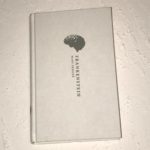
During the birth of the industrial age, the art world draw great inspiration from the changing world, so why were the Romantics focused on Nature? So what made the Romantics so interested in Nature? Their quest for liberty seemed to draw a lot from their natural surroundings. What did Blake, Wordsworth, Lord Byron & Mary Shelley draw from the natural world?
Blake
As a boy William Blake dreamed of a different type of world; claiming he had a vision of angels while staring at the sunlight shining through the trees.
To see a world in a grain of sand, And a heaven in a wild flower, Hold infinity in the palm of your hand, And eternity in an hour. Auguries of Innocence (1803)Blake never forgot his vision and like most Romantics, often drew inspirations from his childhood imagination. While the industrial age was taking a toll on child innocents with the use of child labour, Blake wrote a collection of poems called Songs of Innocence in which he dreamed of a world of innocent children again, included poems like The Chimney Sweeper, in while he hopes to save four and five child chimney sweepers. But his desire for innocents was shattered when he lost his brother, this lead to a new collection of poems called Songs of Experience, which included a darker version of The Chimney Sweeper. William Blake considered the industrial age the works of the devil, having left the city to live on the outskirts to be closer to nature.
And did the Countenance Divine,Shine forth upon our clouded hills?
And was Jerusalem builded here,
Among these dark Satanic Mills? And did those feet in ancient time (1808)
Wordsworth
Wordsworth grew up in the Lake District and was heavenly influenced by this. William Wordsworth had a love/hate relationship with nature. While he loved his childhood growing up in the Lake District, he also lost both parents due to the acts of Nature and had been educated by the natural forces all around him. One night he was stuck in a situation similar to what caused his father’s death, but instead of fear, Wordsworth discovered an awe of the power of nature, it could render him small and insignificant but it also could connect him to the world.
Was blowing on my body, felt within A correspondent breeze, that gently moved With quickening virtue, but is now become A tempest, a redundant energy, Vexing its own creation. Thanks to both The Prelude, Book One (1799)Byron
1816 was known as the year without a summer, as a result of a volcanic winter event. Lord Byron thought this to be the beginning of the apocalypse. While he didn’t spend much time in nature, this fear and respect for nature brought a group of intellectuals together. The fear of darkness and nature brought together a group of new Romantics.
I had a dream, which was not all a dream.The bright sun was extinguished, and the stars
Did wander darkling in the eternal space,
Rayless, and pathless, and the icy earth Swung blind and blackening in the moonless air;
Morn came and went -and came, and brought no day,
And men forgot their passions in the dread
Of this their desolation Darkness (1816)
Shelley
During the year without summer, Mary Shelley was hidden indoors with Lord Byron, her lover and future husband Percy Bysshe Shelley. During these nights they would write poetry and gothic stories and during this time was the birth of one of the greatest horror novels of all time. Frankenstein was a cautionary tale that expresses the dangers of messing with nature and a great source of the romantic ideal. Frankenstein’s message was clear, respect and revere nature.
The Romantics were the first to express a desire for the sublime in nature. Their longing for nature was not just the discovery of beauty but the terror that nature can bring. The key to the sublime was the ability to lose themselves, with no restraints or confinement. Weather they feared or loved nature, or just feared the modern world; nature played a big part of the Romantic Period.





Fantastic post. I love the strength and imagery of Blake, and the clarity of Wordsworth. They’re really all sublime.
Thanks, I’m very proud of this post, I think one of my favourites. I’m seeking the sublime
Nice post! I love the romantic period. You should write a post about the romantic painters now that you talked about Blake.
Good idea, I will have to research it more but I will